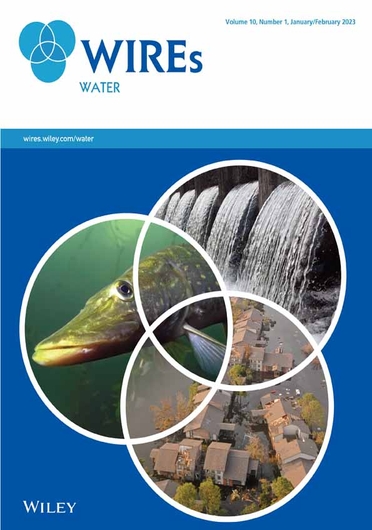Homelessness and water insecurity in the Global North: Trapped in the dwelling paradox
IF 5.8
1区 地球科学
Q1 ENVIRONMENTAL SCIENCES
引用次数: 3
Abstract
In this article, we introduce the “dwelling paradox” to explore how the state actively produces water insecurity for people experiencing homelessness in the Global North. We explain that the dwelling paradox is (1) produced by a modernist ideology of public service delivery that privileges water provision through private infrastructural connections in the home; (2) is reproduced by the welfare‐warfare state, which has increasingly weaponized public water facilities and criminalized body functions in public space; and (3) is actively contested by some houseless communities, who challenge hegemonic ideals of the “home”—and its water infrastructure—as a private, atomized space. In advancing a relational and spatial understanding of water insecurity, we use the dwelling paradox to illustrate how unhoused people are caught in a space of institutional entrapment that is forged by state power and amplified by anti‐homeless legislation. Such spaces of entrapment make it extremely difficult for unhoused people to achieve a safe, healthy, and thriving life—the basis of the human rights to water and sanitation.

全球北方的无家可归和水不安全:困在居住悖论中
在这篇文章中,我们引入了“居住悖论”来探讨国家如何积极地为全球北方无家可归的人制造水不安全。我们解释说,住宅悖论是(1)由公共服务提供的现代主义意识形态产生的,这种意识形态通过家庭中的私人基础设施连接特权提供水;(2)被福利战争国家所复制,这些国家越来越多地将公共供水设施武器化,并将公共空间中的身体功能定为犯罪;而(3)则受到一些无家可归社区的积极质疑,他们挑战“家”及其水基础设施作为一个私人的、原子化的空间的霸权理想。为了促进对水不安全的关系和空间理解,我们使用住宅悖论来说明无家可归者如何陷入由国家权力塑造并被反无家可归者立法放大的制度陷阱空间。这种陷阱空间使无家可归者极其难以过上安全、健康和繁荣的生活,而这是享有水和卫生设施的人权的基础。
本文章由计算机程序翻译,如有差异,请以英文原文为准。
求助全文
约1分钟内获得全文
求助全文
来源期刊

Wiley Interdisciplinary Reviews: Water
Environmental Science-Ecology
CiteScore
16.60
自引率
3.70%
发文量
56
期刊介绍:
The WIREs series is truly unique, blending the best aspects of encyclopedic reference works and review journals into a dynamic online format. These remarkable resources foster a research culture that transcends disciplinary boundaries, all while upholding the utmost scientific and presentation excellence. However, they go beyond traditional publications and are, in essence, ever-evolving databases of the latest cutting-edge reviews.
 求助内容:
求助内容: 应助结果提醒方式:
应助结果提醒方式:


